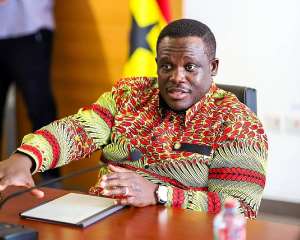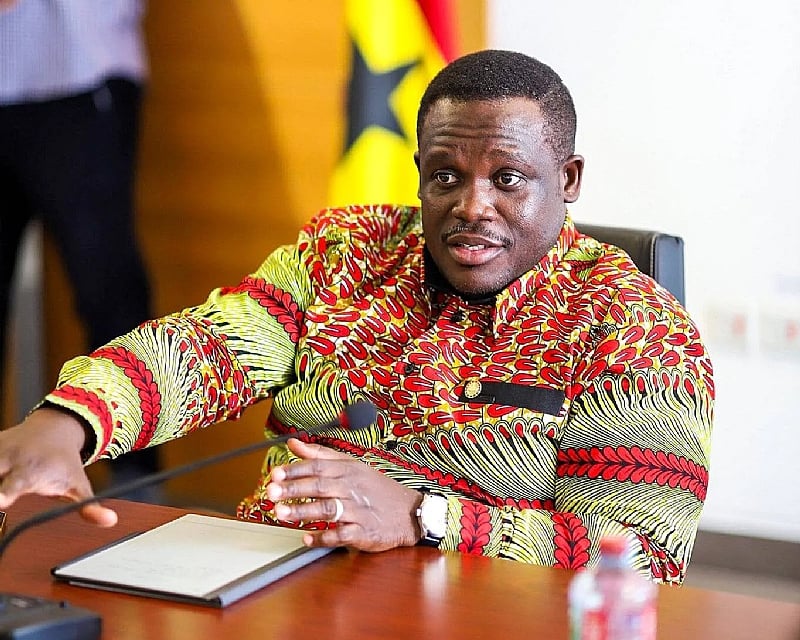 Samuel Nartey George
Samuel Nartey GeorgeGhanaians could soon benefit from lower mobile data charges as the government moves to review the heavy tax load currently levied on telecommunications services.
At a press briefing on Tuesday, June 10, 2025, Minister for Communications and Digitalisation, Mr. Samuel Nartey George, announced that talks are ongoing with the Ministry of Finance to restructure the range of taxes that account for nearly 39% of consumer data costs.
“These taxes make up close to 39 per cent of what consumers pay,” Mr. George told journalists. “We are currently engaging the Finance Ministry to look at the components, so that when that is done, customers can see more reductions in their data charges.”
He explained that the taxes under consideration include VAT, the National Health Insurance Levy (NHIL), the Ghana Education Trust Fund (GETFund) levy, the COVID-19 levy, and the Communications Service Tax (CST). Adjusting this tax mix, he said, would create room for telecom providers to reduce prices further.
To complement this tax review, Mr. George disclosed that all three major telecom operators—AirtelTigo, Telecel, and MTN—will be rolling out enhanced data packages beginning July 1, 2025.
AirtelTigo’s GH¢400 bundle will expand from 190GB to 236GB. Telecel’s GH¢400 bundle will jump from 90GB to 250GB. MTN, which dominates the market with 76% of mobile users, will apply a 15% data increase across its packages. Its updated GH¢399 plan, formerly GH¢350, will now offer 214GB, up from 92.88GB.
“These increases come at a cost to the providers, and I commend them for making this effort for Ghanaians,” Mr. George said.
He also announced that the government is fast-tracking the long-pending spectrum allocation process, which is expected to conclude by early July. The allocation will address persistent challenges around network congestion and poor service quality.
Collectively, MTN, AirtelTigo, and Telecel have committed to investing around $150 million by the end of the year. The funds will be directed toward spectrum acquisition, the installation of new transmitters, and infrastructure upgrades to enhance network performance nationwide.
Telecel, in particular, has gained approval to access the NGIC 2,100MHz spectrum through a newly issued Connecting Entity Licence—a move expected to improve data speed and stability in the short term.
Beyond the tax and spectrum reforms, the Ministry of Communications is partnering with the Ministry of Energy and the Public Utilities Regulatory Commission (PURC) to negotiate a dedicated electricity tariff for the telecom sector, similar to rates granted to the mining industry.
Reflecting on past challenges in the sector, Mr. George acknowledged disagreements with previous government decisions, particularly around the upfront collection of the Communications Service Tax and delays in spectrum releases—policies he said had long-term effects on pricing and quality.
“In a free market, I cannot impose prices, just as the Minister for Trade cannot instruct GUTA members to reduce theirs,” he said. “But we are engaging the industry to find workable solutions.”
To ensure accountability, the National Communications Authority will conduct a nationwide quality-of-service audit between October and December 2025. Operators who fail to meet the required standards will face penalties.
“After eight years of poor management, we cannot fix everything in four months,” Mr. George said. “But the actions we are taking will lead to real changes in how much Ghanaians pay and the quality of service they receive.”


